Lucien Favre’s return to the Bundesliga has been nothing short of a revelation. His team are playing a dynamic, exciting and progressive style of football that has captured the imagination. His appointment in time for the coming season meant that he had time and money to build his ideal squad. A vital part of his 4-2-3-1 is the midfield pivot of Axel Witsel and Thomas Delaney.
It’s rare that Borussia Dortmund spend their money on players pushing 30, but Witsel was an exception. Knowing the importance of transitions and tempo shifts, Favre required a player with certain attributes: strength, intelligence, and experience. In the 29-year-old Belgian, this is exactly what he got. Although catching less column inches than Jadon Sancho’s emergence and Marco Reus’ resurrection, Witsel has arguably been the key in his side’s success thus far.
In this tactical analysis of his first half-season at the club, I’ll look at the key aspects and statistics of Witsel’s play, looking at how it has facilitated Favre’s philosophy.
Key transition player in Favre’s double-pivot
Favre’s style has been dubbed “modern jazz” as opposed to Jurgen Klopp’s “heavy metal” style. The name alludes to playing with freedom within confines, the rapid shifts in tempo and an overall degree of tightness. Witsel is crucial in each.
Shifting tempo with Borussia Dortmund usually entails a patient build-up from the back. During this stage of play, Witsel and Delaney often combine with the centre-backs, allowing the full-backs to play a more advanced role, combining with the midfielders to open up space.
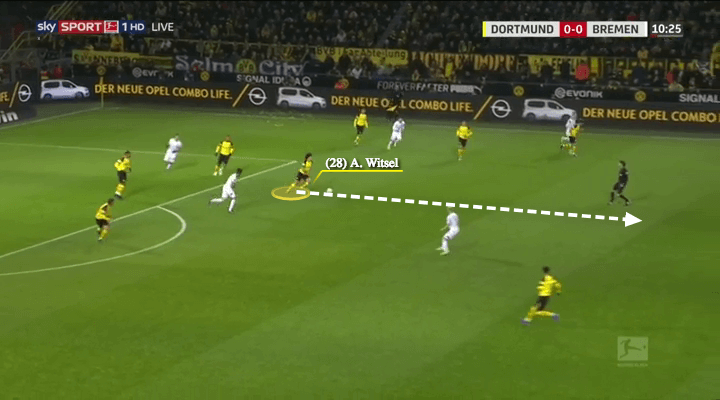
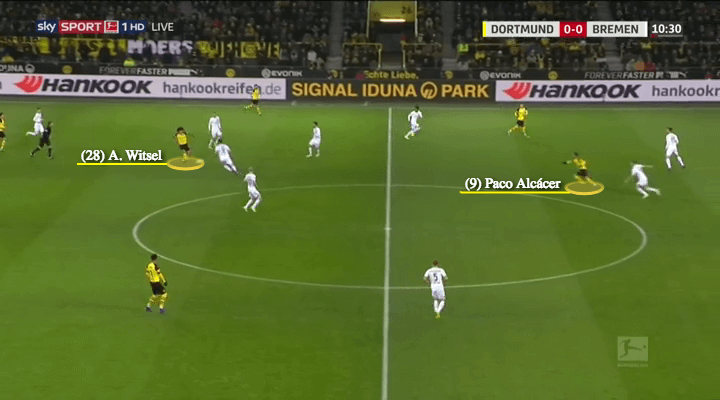
The double-pivot reacts instantaneously to various triggers signifying the launch of an attacking move. Witsel and Delaney’s decisiveness makes them particularly dangerous. They typically facilitate the switch in play by pushing the defensive line higher and forcing errors. This allows openings to be manipulated by Dortmund’s intricate positional play. Unpredictable tempo shifts have been a devastating facet of their tactical signature thus far.
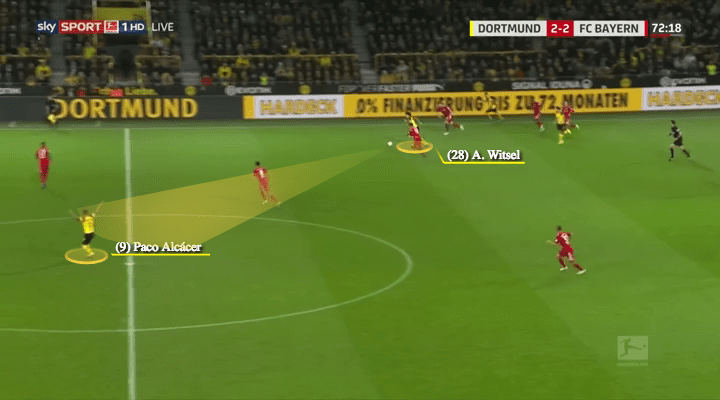
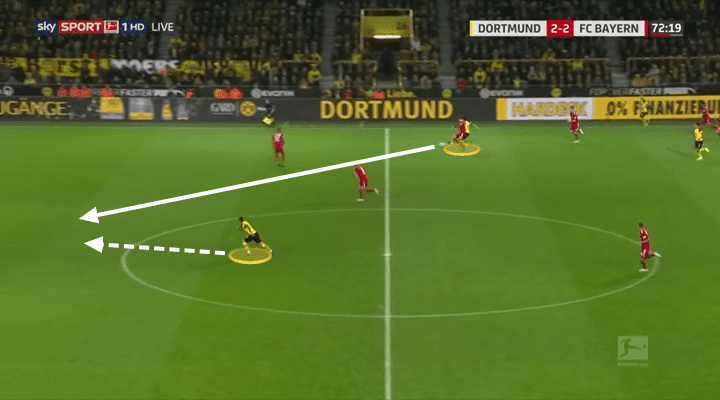
Versatile and economic on the ball
Necessitating a prominent performance in Europe as well as domestically, Witsel has quelled initial critics in his efforts to help Dortmund succeed. Progressing from a group that featured Atletico Madrid and Monaco, Witsel was as effective as ever.
He topped the Champions League pass statistics table for highest completion with 96% (427 of 447) and displayed his intelligence and ability to read the game. The Belgian has taken Favre’s emphasis on economic play to a considerable high. His movement on and off the ball epitomises Favre’s stringent focus on reducing wasteful movement and behaviour. It’s not only that his passes are accurate though. They also occur in key areas of the field, such is his positional awareness.
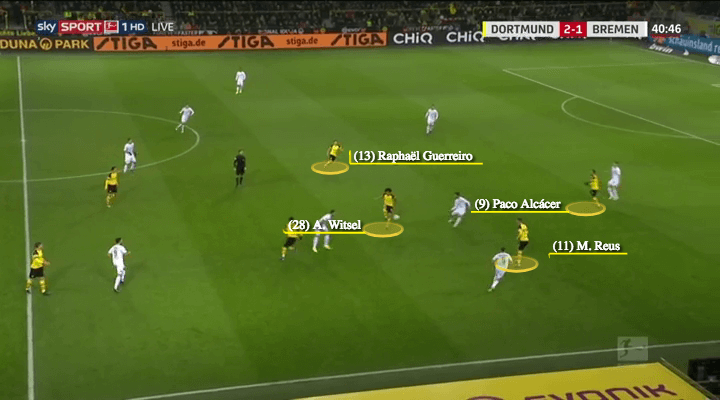
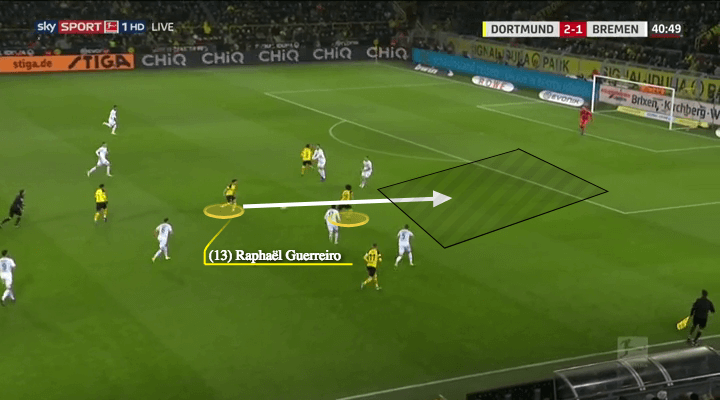
A versatile player, Witsel operates in both attack and defence. Physically, Witsel is perfect for both holding up the ball and running at defenders. He’s strong and athletic, enabling players in the advanced phase of play to work at opening space. His initial role of ‘enforcer’ has evolved into that of ‘enabler’.
To look at, Witsel has seldom produced moments of greatness (besides one spectacular overhead kick goal), yet his impact has been invaluable. Whether it be in the defensive or attacking phase, he’s constantly circulating the ball. His pass success of 94% in the Bundesliga is second only to Bayern Munich’s similarly versatile Niklas Süle. Movement is a key part of Dortmund’s methodology and Witsel is the most well-oiled cog.
Positional awareness and vision
Axel Witsel is widely and correctly regarded as a complete midfielder. Besides the other two aforementioned facets of his game, it’s his ability to read play that stands out. Undoubtedly his senior role has a lot to do with his age, but his globe-trotting experience at club level and international appearances (101 caps) have given him a holistic and cultured perspective.
As good as his passing in the transition is, he’s been a crucial element of Dortmund’s defence. In last year’s campaign, the side boasted the third strongest attack (64 goals) but only the ninth-best defensive record (47 goals conceded). Witsel not only links up with the defence but often joins them. This season the club boast the league’s strongest.
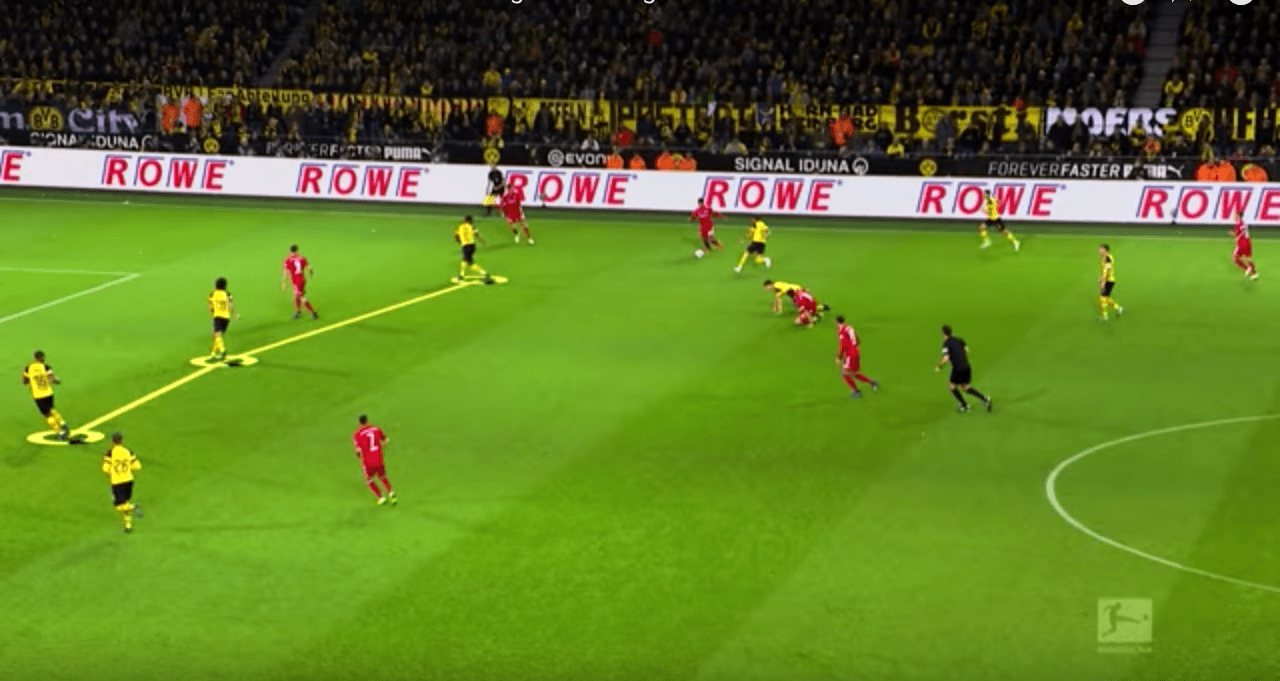
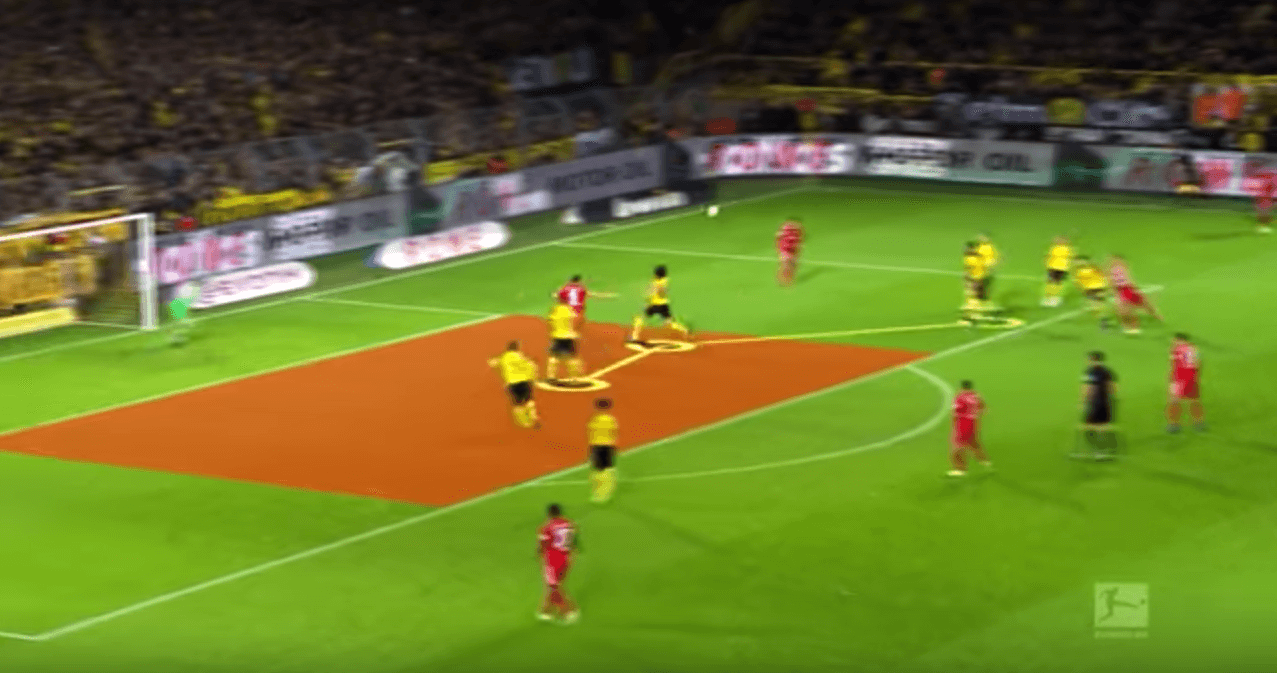
This particular attribute (vision off the ball) is an accompaniment to his play in possession. His off-the-ball movement and ability to predict the game has meant that he has provided key cover in important defensive areas when other players have drifted from their position.
Conclusion
Dortmund’s exhilarating and dynamic style of football has been greatly admired this season, well beyond the usual Bundesliga fanbase. Emerging talent like Achraf Hakimi and Jadon Sancho may well be where most of the attention is going, or even to the phoenix-like re-emergence of Marco Reus, but Witsel is oft overlooked and wrongly so. Accepting that their €20 million signing would likely have little re-sell value, he was somewhat of a risk. It’s clearly paid off.
Like Michael Carrick and Darren Fletcher at Manchester United, he is the lynchpin of the team. Without him and Delaney, there’d be no 4-2-3-1. It’s with this that Dortmund have been lighting up the league. Witsel’s unique ability to bolster the defence whilst providing a buffer between defence and attack is immeasurable. That he can be as impactful in attacking movements sets him apart from almost any other in that role.
If you love tactical analysis, then you’ll love the digital magazines from totalfootballanalysis.com – a guaranteed 100+ pages of pure tactical analysis covering topics from the Premier League, Serie A, La Liga, Bundesliga and many, many more. Get your copy of the FIRST of two December issues for just ₤4.99 here, or the SECOND of the December issues with an annual membership right here.

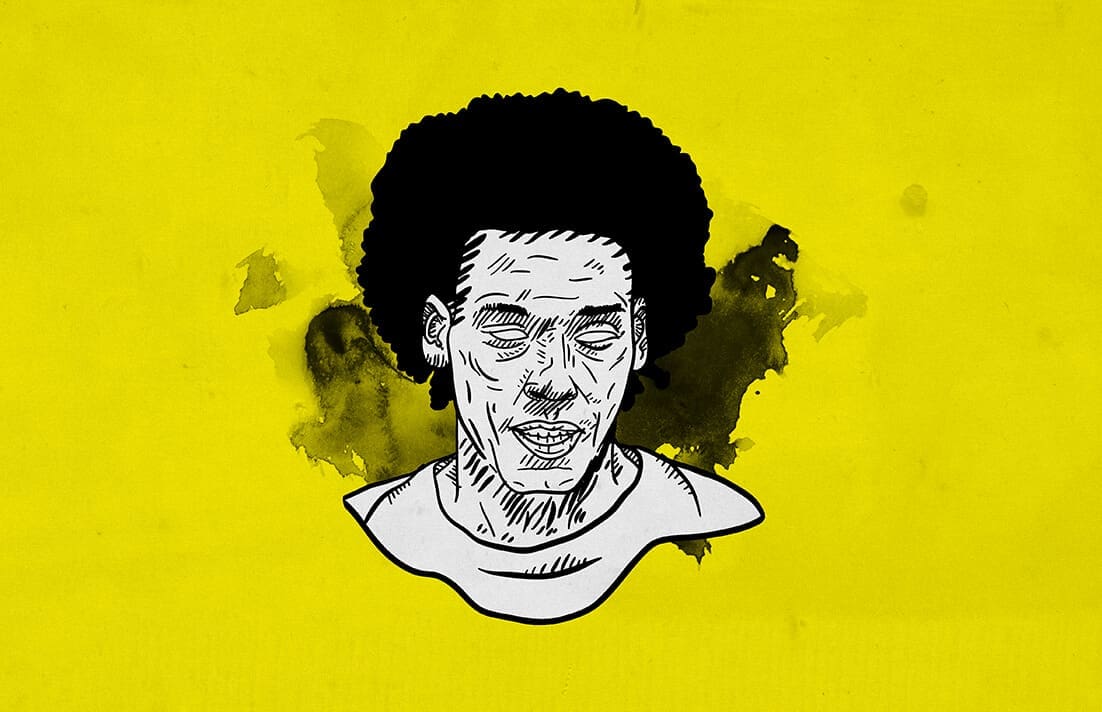



Comments